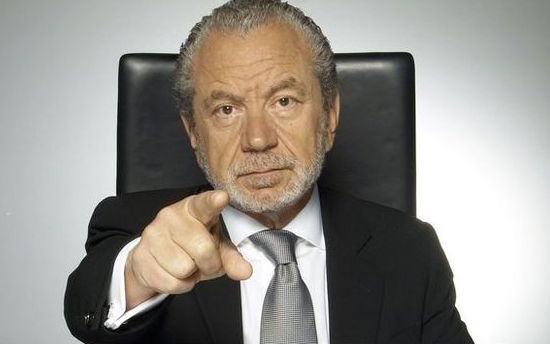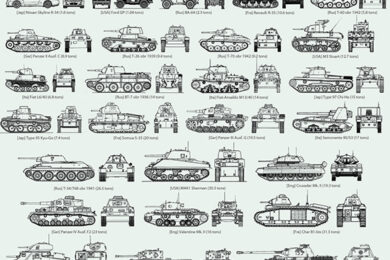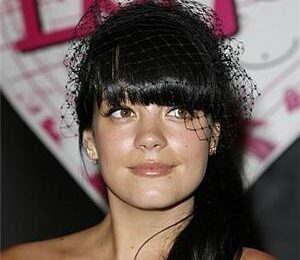When The Apprentice first hit British screens it seemed an opportunistic, even cynical commission – simply a lazy hijacking of an American format. Was anyone really interested in the demented scramblings of a dozen desperate business-bots? And Alan Sugar? Were they sure? Had they never heard him speak? This had ‘one series wonder’ written all over it. But it’s worked. And worked and worked and worked.
And it’s far from alone. As capitalist realism has embedded itself in our collective subconscious, so has business in our TV schedules. Alongside The Apprentice, other business shows to have put down strong roots during this last decade include Dragons’ Den, Mary Queen Of Shops (which, as life imitated art, actually earned its presenter a government consultancy role), Undercover Boss. The economic crisis didn’t dent business TV, just as ultimately, it didn’t seem to dent mainstream public faith in the neo-liberal economic consensus.
As both the sturdiest and most nakedly savage of these spectacles of pure, weapons-grade schadenfreude, The Apprentice makes the most illuminating case study. The editing is state-of-the-art brutality and probably represents both a landmark and a sea-change in the treatment of ‘ordinary people’ on public service television. Because the controls are unapologetically set for maximum ludicrousness here – contestants watching themselves on the show after the event must wince so hard they nearly snap their spines. Ever noticed that almost without exception, failed Apprenti seem way nicer on The Apprentice: You’re Fired? That’s not just because they’ve given up the hustle and resigned themselves to returning to the moderately successful IT business in Harlow that they’ve spent the previous two months pretending is the next Apple. It’s also because finally, these ham-fisted cut & shut humans seemingly assembled from all the most corrosive post-millennial neuroses are being allowed to act normal, speak in proper sentences, contextualise their opinions, display modesty and humility and laugh at themselves. Dara O’Briain is redeeming them, helping them to decompress before they’re sent back into the world.
As was the case with Big Brother, reality TV has slithered out of its box in the corner and enfolded us all as the inhabitants of the real world have got more and more like Apprentice contestants. The world of The Apprentice has expanded to internalise us – subtly altered our wiring, normalised what once seemed like extremity, infused us all with the essence of Stuart Baggs and Ruth Badger. Once, we mocked. But to mock, we imitate, to imitate we assimilate and after assimilation, we adopt. Are the contestants more run-of-the-mill now? Maybe. But maybe we’ve just got tired of fighting them; stopped noticing their preposterousness because we’ve drifted in their direction.
So now we dance to their tune; a tune whose lyrics contain lines like ‘I’m the reflection of perfection’ and ‘everything I touch turns to sold’. Business language is now everywhere – everything’s vertical silos and low-hanging fruit and core competencies. But in practical terms, there are convergences too. The wider economy and even the wider world has increasingly mirrored the implied values of The Apprentice. Jobs for life have become rarer and rarer. Hirings and firings have become more seemingly arbitrary. Paranoia reigns amidst a buyers’ job market characterised by instability, part-time and temporary work and zero hours contracts. Workplace solidarity is a thing of the past. The nation howled with laughter when the aforementioned Baggs described himself as ‘the brand’. But during this period, we’ve begun to brand ourselves too – via Facebook, Twitter, Instagram and Linkedin. But the more we’ve self-branded, the less we’ve managed to stand out. Because the ultimate effect of this business epoch has been either flattening and homogenising or coarsening and cheapening. Who is the only real breakout star of The Apprentice? Katie fucking Hopkins, that’s who. A gift to the world, indeed.
Is Hopkins an outlier? Not especially. She’s simply an amplified version of the show’s underlying ethos. Remember formidable self-described ‘saleser’ and widely derided language-mangler Melissa Cohen with her ‘professionality’ and her ‘managence’ and her dark murmurings of enemies on the show being ‘karmically retributed’? She was the thin end of the wedge. Because The Apprentice generation are Neo-Philistines. While Melissa was silly and funny, she was deadly serious too. Like Michael Sophocles, the classics graduate and ‘good Jewish boy’ who, it turned out, didn’t actually know what kosher meant, she was symptomatic of one of the most depressing aspects of The Apprentice. None of these people are stupid, exactly. But most of them are profoundly ignorant and worse still, utterly incurious. And this seems entirely of a piece with parallel developments in education policy over the same time period. What’s evolved is a narrower, more vocationally angled curriculum with less room for the abstract, the arcane and the quixotic; education that’s a means to an end rather than its own reward. Tuition fees and student loans continue to drive young people away from rarefied academic areas and into the arms of cookie-cutter study briefs with no purpose beyond the conventional straight and narrow of working life.
Like all of us stumbling around in the slippery darkness of the current job market, the contestants don’t spare each other either And why would they? They’re within touching distance of a dream! Doesn’t this self-deception embody us all? Isn’t this hopeless yearning and concomitant self-hatred one of the defining features of how we live now? Everything from talent shows to advertising teases it out of us. We’re seemingly defenceless against it, even as we understand how unhappy it makes us. Business television reinforces this false consciousness by telling us that our problems are our own fault. If Sir Alan scowls and mocks, it’s because you’ve lost him money. If Mary Portas takes your shop apart and reassembles it as a stark, minimalist nightmare, it’s because you didn’t understand what people wanted. If the Dragons take the piss, it’s because your idea’s crap. Once, the Prime Minister told us we were all in this together. But we’ve never been more isolated, powerless and put-upon.
So while shows like The Apprentice might be ugly, they’re definitive too. Much of the best art holds up a mirror to its age and forces people to look at themselves. Most would bridle at this description of The Apprentice, Dragons’ Den et al and they’d surely be right. But they’ll still be among the cultural phenomena that the history students of the future will see as most emblematic of the early 21st century. They’re a bitter battle without a worthwhile prize; arduous journeys without a satisfying arrival. They’re everything many of us hate but in a variety of ways, they’re also what we are. We are all Apprentices now.





